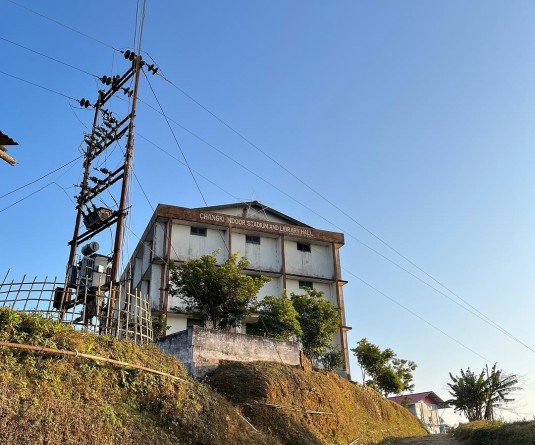
DIMAPUR, JANUARY 5 (MExN): A joint consultative meeting of ENPO and 6 tribal units (CKS, KTC, KU, PPC, USLP & YTC) adopted the ENPO Pangsha resolution to oppose the ongoing construction of border fencing along the Indo-Myanmar border by the Myanmar government at Pangsha village.
A press note from the ENPO said that it would not allow movement of any organizations/agencies across international boundaries through Eastern Nagaland without prior permission from ENPO, Konyak Union, Khiamniungan Tribal Council and Yimchunger Tribal Council.
It further resolved that the ENPO, KTC and remaining 5 Federating Tribal Units would jointly pursue the matter basing on the memorandum submitted by KTC to the Prime Minister of India on December 12, and as requested to the Prime Minister of India by the Chief Minister of Nagaland and Chief Secretary of Nagaland for taking up the matter with the Myanmar counterpart in this regard.
After the consultative meeting, the ENPO and public visited the spot and interacted with both Indian and Myanmar Armies who are stationed there. The ENPO also seriously viewed the demolition of Pangsha Helipad between pillar no. 145 to 146.
NPG Working Group against ‘sinister policy’
Meanwhile, the Working group of Naga political groups comprising of the GPRN/NSCN, NSCN (R), NNC (parent body), NNC/GDRN and NNC/NPGN has called upon the Naga people to “fight tooth and nail against the attempt by GOI and Myanmar to pursue border fencing along the so-called international border.”
A press note from the Working Group stated that “this policy is to create further rift within the Naga family and to completely marginalise and weaken the strong historical, cultural, social, political and emotional affinity between Nagas spread across artificial boundary.”
It resolved to act against any move to fence imaginary border by GoI or Myanmar as it would sever off tribes, clans, families and their ancestral properties.
“The GoI and Myanmar are about to commit crime against the Nagas again should the imaginary boundary be fenced right in the middle of the Naga Nation, having set up pillars decades ago without the consent and approval of indigenous Nagas who settled in their homeland more than a thousand years ago,” it said.
The Working Group called upon the GoI and the Myanmar government to “understand that honorable and acceptable political solution should precede any boundary fencing in Naga homeland.”
The present geo-political situation in the region may necessitate certain political arrangements acceptable and honorable to indigenous Nagas on both sides of the so-called international border, it stated. It however pointed out that all Nagas whether in India or in Myanmar are bound by common history, heritage, customs and traditions which cannot be separated by imaginary boundaries.
It further appealed to all Naga tribes in India and Myanmar to “rise up against the sinister policy at work.” “We must prevent occupational forces from setting up boundaries between us in our homeland against our will,” it said.





